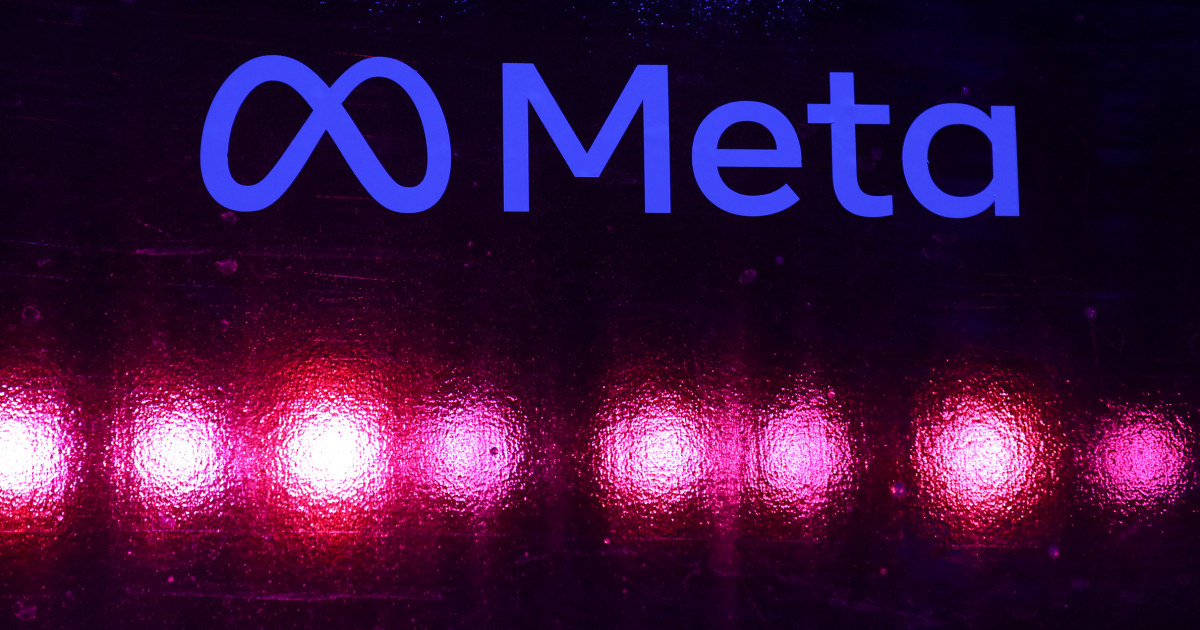A Palestinian American software engineer sued Meta this week alleging the social media company discriminated against him and unlawfully fired him in retaliation after he investigated user allegations that the company was censoring Palestinian creators and activists.
The lawsuit filed Tuesday said the engineer, Ferras Hamad, “was scrutinized, interrogated, and terminated because he was of Palestinian national origin and/or Muslim,” and, they added, because he was investigating the censorship claims. He was fired in February despite the investigations being part of his job, according to the suit.
Hamad “is simply the latest victim” of the company’s “chronic” and “consistent anti-Palestinian bias,” the lawsuit says.
Meta, the parent company of Instagram and Facebook, said in a statement Wednesday that the firing was about “data access policies,” not bias.
“The employee was dismissed for violating Meta’s data access policies, which we make clear to employees will result in immediate termination,” the company said.
The company’s data access policies are internal and relate to employee conduct, according to Meta. The company says the policies set strict parameters on what kinds of data employees can access and when they can do so.
Hamad’s lawyers said he didn’t violate policy. In the lawsuit and in an interview, the lawyers said Hamad was doing his job when he investigated whether Palestinians were being censored, and they said he was tasked in October with “assessing the quality of Instagram integrity filters as they related to Gaza, Israel, and Ukraine.”
Hamad’s attorneys say the alleged policy violation related specifically to an allegation by Meta management that Hamad personally knew a widely followed Palestinian photographer, Motaz Azaiza, while also trying to restore Azaiza’s Instagram account to full status. The lawyers said that allegation was wrong and that the two men have never met.
A representative for Meta declined to comment on the specifics of the lawsuit.
Hamad joined the company in March 2022 as a software engineer focused on machine learning, and he worked on location-based recommendations including around breaking news, the lawsuit says.
As part of his work, he routinely responded to problems affecting users of Facebook and Instagram, and in December he weighed in on an internal Gaza-related group chat where he believed co-workers weren’t following protocol to address user concerns, the lawsuit says. The suit also says Hamad saw that the photographer Azaiza, then with 17 million followers on Instagram, had been disqualified from recommendation systems because a video of his showing a destroyed building in Gaza had been incorrectly classified as “pornographic.”
Azaiza’s work had already been featured in multiple news outlets, including NBC News and The New York Times.
But Hamad was told by other Meta employees that he should back off investigating the allegations of censorship, the lawsuit says. The other employees gave conflicting accounts to Hamad, his suit claims: One co-worker said he should stop because the issue had been resolved, and a second co-worker “told Plaintiff to stop looking into the issue, claiming it was being investigated by a different team,” according to the suit.
Hamad soon left for vacation and was fired weeks later after he returned, according to the suit.
Meta fired him shortly before he was due to vest in company stock and receive his annual bonus, the lawsuit says.
“They really hit him where it hurts: They punished him through his career and they punished him significantly financially,” said Shahmeer Halepota, an attorney for Hamad.
Hamad was born and raised in the U.S. and lives in California, according to his lawyers. He received a rating of “greatly exceeds expectations” for his 2023 performance review, putting him among the top 10% of engineers in his cohort, the lawsuit says.
The lawsuit was filed in state court in Santa Clara County, California, where Meta has offices.
The allegations by Hamad echo concerns from human rights advocates about whether Meta has been evenhanded in its handling of the Israel-Hamas conflict in Gaza. Human Rights Watch said in a report in December that Meta had been systemically and globally suppressing voices in support of Palestinians, and that same month, Meta’s independent Oversight Board said the company had been “overbroad” in taking down speech any time someone used the Arabic word “shaheed,” often translated as “martyr.”
The Oversight Board, which functions as an appeals court for content moderation decisions on Facebook and Instagram, is weighing whether the apps should continue allowing the pro-Palestinian phrase “from the river to the sea.” Some pro-Israel users call the phrase hate speech, saying it equates to calling for the destruction of Israel.
Others including Sen. Marsha Blackburn, R-Tenn., argue that Meta is biased toward removing pro-Israel content.
Meta has defended its handling of both pro-Israel and pro-Palestinian content, saying in December that the company is dealing with an enormous amount of content and complaints during a “fast-moving, highly polarized and intense conflict.”
“We readily acknowledge we make errors that can be frustrating for people, but the implication that we deliberately and systemically suppress a particular voice is false,” the company said at the time.
Instagram has served as a crucial conduit for images and other information coming from Gaza, as journalists and digital creators turn to the app to report on hostilities and daily life.
The lawsuit alleges that Meta has handled Palestinian-related posts and disputes differently than those arising from other global conflicts, such as the Russia-Ukraine war.
“When it comes to Israel or Ukraine, if you message about loved ones who died or civilians who died then you’re treated differently,” said Joe Ahmad, a second lawyer for Hamad.

